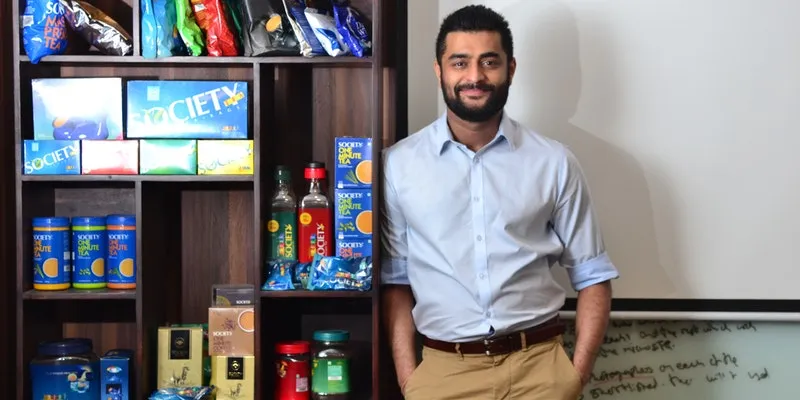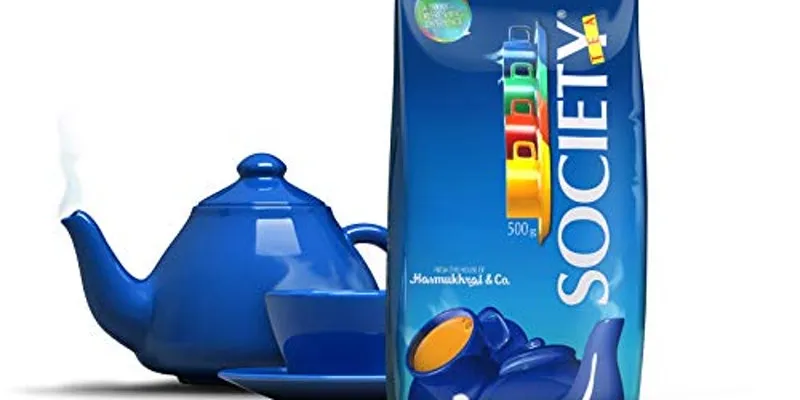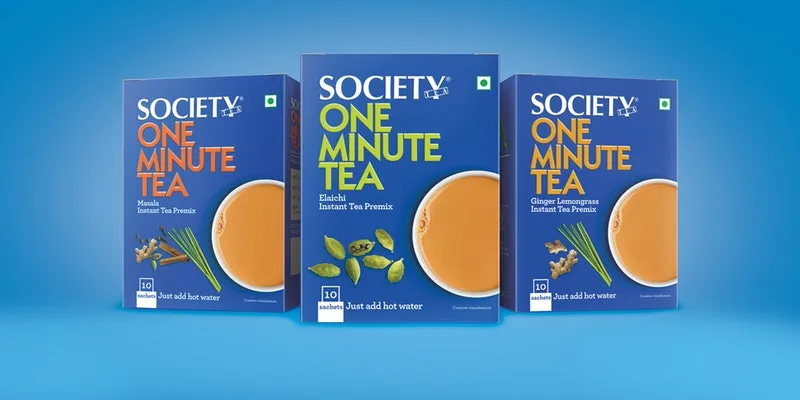From trading at Mumbai’s Chai Galli to becoming a premium tea brand: Society Tea’s multi-crore growth story
With its origins in Mumbai’s famous Masjid Bunder’s Chai Galli, Society Tea has a century-long history. Director Karan Shah traces the Rs 490-crore company’s journey with tea, and its expansion into other categories.
Masjid Bunder’s Chai Galli in Mumbai was one of the biggest marketplaces for tea leaf wholesalers in Maharashtra. The narrow lanes have given India some of its most recognised tea brands, including .

Karan Shah, Director, Society Tea
One of India’s largest premium tea brands, Society Tea had its roots when Hiralal Shah started trading on Masjid Bunder’s famous tea lane in 1924.
In an interaction with SMBStory, Hiralal’s grandson Karan Shah shares the journey of Society Tea’s evolution and how it came to corner a 40-percent share of the packaged tea market in Maharashtra.
“My grandfather used to source tea from various parts of India to sell it in bulk on wholesale. Apart from being a large supplier for local customers, he also firmly engraved its roots in the international tea trade, trading with Middle Eastern countries on a very large scale,” says Karan, Managing Director, Society Tea.
As India is famously a tea-drinking nation, Hiralal’s main aim was to cater to the discerning consumer. In 1933, he started Hasmukhrai & Co, with a view to retail tea in Mumbai. The first shop was at Kalbadevi, Mumbai.
Brewing the perfect cup

By the late 1980s, Hasmukhrai & Co. had become one of the market leaders in the tea industry in Mumbai. Sensing that the customer prefers the convenience of packaged tea, the company launched tea in packet form in 1991, which was available across retailers in Mumbai and, later, Maharashtra, by the name of Society Tea.
Society Tea now records an annual turnover of over Rs 490 crore, (according to MCA) with a wide presence across India, including Goa, Andhra Pradesh, Madhya Pradesh, Karnataka, Tamil Nadu, Punjab, Rajasthan, and Delhi.
“My father, Atul Shah, launched the brand, and when he did so, he was faced with a challenge of giving it an identity to stand out. In advertisements, red creates a sense of urgency and encourages appetite and so, this colour is frequently used by FMCG chains. Green promotes nature and peace. He however went with blue, a colour that provides a sense of security and stimulates productivity,” Karan explains.
He adds that the brand has scaled production up by 3x to be able to cater to other markets and other price points.
The company sources tea leaves from across India, including Assam, Darjeeling, and Munnar. It has two manufacturing units in Sanjan and Umbergaon in Gujarat.
Growing and diversifying
At Society Tea, the product portfolio is diverse with a variety of products, including green tea, herbal tea, and mixes for iced tea, apart from the usual dust and loose leaf formats.
The company also launched ‘one-minute’ as a category that has two products: one-minute tea and one-minute coffee with six variants.
Then came the dairy products.
Karan says,
“We are extremely quality conscious and were not satisfied with the quality of dairy whiteners available in the market which is a key ingredient for one-minute tea. So, to keep a close check on the raw materials we ventured into dairy and set up our own factory at Baroda. This state-of-the-art plant manufactures products under strict hygienic standards to meet the highest levels of quality and excellence. This gives a whole range of dairy products, which include dairy whitener, skimmed milk powder, ghee etc.”

Society Tea's 'one-minute' tea range
Society Tea has also expanded its product range beyond beverages and dairy to include chutneys and pickles.
Talking about diversification in the product category, Karan says that it’s all about R&D of the products.
“We are constantly in touch with the current trends and are always striving to identify the opportunity, that gap that exists in the market. Along with creating new products and adding features to old ones, investing in R&D connects various parts of a company's strategy and business plans, such as marketing and cost reduction,” he adds.
In 2019, the brand opened a 2,200 sq ft café, called Tea Terminal, in Mumbai.
Major challenges
Tea is a natural product and there are a lot of factors involved – like the health of the bush, the natural light etc. Karan says these factors are a major contributor to taste. As a brand or for any tea player, the biggest challenge will always be to stabilise these factors and provide a consistent taste.
“At Society Tea, we focus on understanding what our consumers want and have worked towards providing them with the right cup of tea. In order to sustain in the business, I believe that improvisation is vital. Prevailing in that direction, we are keeping up with the changing consumption patterns and demands of our customers by customising tea blends according to each market’s requirement.”
The way ahead

Society Tea's pickle and chutney
India’s national obsession with tea has rendered the beverage almost sacrosanct. Every individual has a personal relationship with tea and the way it is consumed changes with the region. With this as a backdrop, Karan says Society Tea strives to be a national brand. This means customising blends for each market.
Karan says the company is looking at every major city across the country while staying true to the core values and taking the essence of simple homegrown food products and converting them into beloved staples.
The company also plans to launch lower sugar variants of their one-minute drink range besides introducing new ranges over the next one year.




1551863543124.png?fm=png&auto=format&h=100&w=100&crop=entropy&fit=crop)
1565616772022.png?mode=crop&crop=faces&ar=16%3A9&format=auto&w=1920&q=75)



